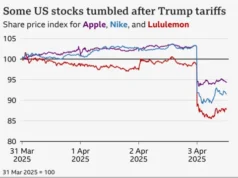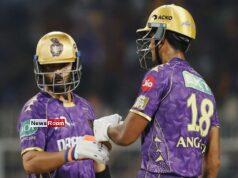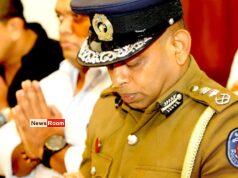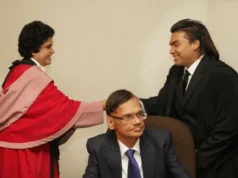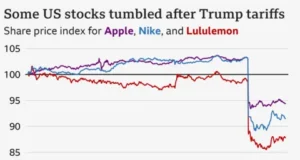Catholics in Bahrain hail mainly from the Philippines, India and Sri Lanka.
(UCAN) Pope Francis is set to make a four-day visit to Bahrain, a journey that will make him the first pope to visit the Arab kingdom just off the coast of Saudi Arabia in the Persian Gulf.The visit on Nov. 3-6 has two main goals: to speak at the Bahrain Forum for Dialogue: East and West for Human Coexistence and to encourage the predominantly expatriate Catholic and Christian communities who live and work in the Muslim-majority region.
Underlining the theme of the visit, “Peace on Earth to people of goodwill,” the pope is expected to be a “messenger of peace,” appealing to all people and nations to come together, free from prejudice and open to seeing each other as brothers and sisters.It will be the 13th Muslim-majority nation he has visited in his almost 10 years as pope.
Pope Francis is going to Bahrain to further promote interfaith cooperation because “there is a common interest among the monotheistic religions,” Bishop Paul Hinder, administrator of the Apostolic Vicariate of Northern Arabia, told reporters by a video call from Abu Dhabi on Oct. 24.
The common desire is to help “care for creation … knowing that if there is a conflict between Christian- and Muslim-majority nations, it is a problem for the whole world, not just for one or two countries,” said the 80-year-old Swiss bishop, who was first appointed auxiliary bishop of Arabia in 2003, and now oversees Bahrain, Kuwait, Qatar and, formally, Saudi Arabia. The intention of the pope, he said, is “to make us understand that it is absolutely necessary” to find a place where there can be strong mutual respect and cooperation.
The pope will have a chance to underline the role governments, diplomats and members of civil society need to play when he meets with them on Nov. 3 at Sakhir Palace. The pope also will meet with King Hamad bin Isa Al Khalifa, who invited the pope and is sponsoring the Forum for Dialogue event.Bahrain, a prosperous archipelago nation of about 30 islands, is the smallest country in the Middle East, with about 1.5 million people, about half of whom are foreign workers. About 74% of the residents are Muslim and 9% are Christian. People of the Hindu, Buddhist and Jewish faiths are among the other communities present.
Bishop Hinder said there are no official statistics for the number of Christians, but the church estimates there are about 80,000 Catholics in Bahrain, about 1,000 of whom are citizens of the kingdom.Catholics in Bahrain hail mainly from the Philippines, India and Sri Lanka. South Americans, Europeans and Arabs from the Levant region account for the rest of the island’s Christian population.Bishop Hinder said Catholics are overjoyed that the pope is coming to encourage them in the faith.
They are “a small flock with little or practically no power,” he said. The papal visit makes them “feel recognized. ‘We exist!’” and it will boost their morale.The expatriate workers do not have an easy life, he said, not because they live in a Muslim country, but because it is a life filled with uncertainty as many try to figure out their next move: to stay, return home or seek employment in the West.
Freedom of religion is generally well-respected in Bahrain, “even if it isn’t completely ideal,” the bishop said. For example, there are no official legal obstacles to religious conversion, he said, but there can be huge pressure from society and especially from one’s family against conversion.
Bahrain was the first country in the Persian Gulf to build a Catholic church — the Sacred Heart Church, which was inaugurated in 1939 on Christmas Eve. On his last day in Bahrain, the pope will hold a prayer meeting there with bishops, priests, religious, seminarians and pastoral workers.The country is now also home to the largest cathedral in the Persian Gulf region; Our Lady of Arabia Cathedral was consecrated in December in Awali, which is 16 miles south of the capital Manama. It was built to better serve the growing Catholic population — estimated at 2.5 million — throughout the Gulf region.
The pope will hold an ecumenical meeting and prayer for peace in the cathedral on Nov. 4, right after he meets with Sheikh Ahmad el-Tayeb, grand imam of Egypt’s Al-Azhar mosque and university, and with members of the Muslim Council of Elders — an international group of Islamic scholars and experts — at the mosque of Sakhir Palace.
Pope Francis will celebrate Mass at Bahrain National Stadium in Awali on Nov. 5, and Bishop Hinder said organizers have set aside reserved seating for Catholics from nearby nations, especially from Saudi Arabia, which does not allow Christians to practice their faith openly.The pope’s visit will send “a strong signal” to Saudi Arabia, which will surely be watching, but is moving more slowly than some other nations in the region when it comes to greater respect for religious freedom and the dignity of all people, Bishop Hinder said.
“I am confident that going to a small state that does not have a lot of power in the game of Middle East politics” is perhaps “a good place for sending a signal” to the surrounding region, the bishop said.
While there have been some political reforms, Human Rights Watch has flagged several concerns, especially with the work visa sponsorship system, which gives employers excessive power over their foreign employees, and with the use of the death penalty and long prison sentences for pro-democracy activists.Bishop Hinder said he would not expect the pope to raise those concerns publicly because, in his experience, more can be done “behind the scenes.”
Countries in the West are used to being able to openly criticize others, he said. Bahrain, however, has an “affirmative culture,” which emphasizes praise and encouragement, and discourages open criticism, which would be considered disrespectful.What has been more effective in his discussions with leaders, he said, is to confide honestly and privately in a way that “opens the mind” to what the problems are.
“I expect some problematic things will also be on the agenda,” he said, but handled in a more discreet manner, out of the limelight.
Such “symbolic visits by a pope will have effects that we may not be able to foresee today,” he said. “I think his courageous steps will open doors. We don’t know where, but I hope they will also contribute to solutions for the conflicts in the area and perhaps also globally.”

